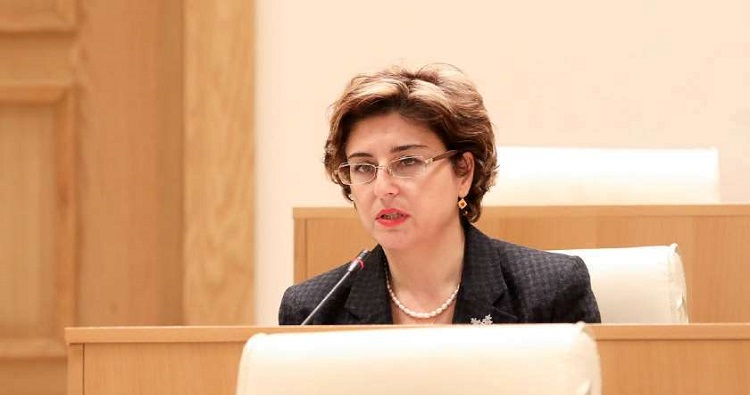Opposition MP calls for end to protest rallies as ruling party withdraws transparency bill

Samnidze also said the domestic opposition in the Parliament should continue its work for the implementation of the European Union conditions for granting the country the membership candidate status. Photo: Parliament of Georgia
Khatuna Samnidze, an opposition MP and the Chair of the Republican Party, on Thursday called for suspension of public protest rallies over the bill on the transparency of foreign influence, after the legislative initiative was withdrawn by the ruling party.
Samnidze also said the domestic opposition in the Parliament should continue its work for the implementation of the European Union conditions for granting the country the membership candidate status.
The process [with the bill] should be brought to an end, and [the ruling] Georgian Dream [party] should officially withdraw the draft law from the Parliament”, the opposition MP told the Georgian Public Broadcaster .
In his turn, Tsotne Koberidze of the opposition Girchi - More Freedom party demanded “more clarity” from the ruling party regarding the withdrawal of the bill and release of those detained by law enforcement at the rallies on Tuesday and Wednesday.
There will definitely be a rally today, because there are many young people who do not trust the Georgian Dream party”, he said.
The ruling party on Thursday said it was “unconditionally” withdrawing the controversial bill, which had been proposed by the People's Power movement and met by a backlash by domestic opposition, civil sector and diplomatic representations in the country.
Georgian Dream cited the interest of maintaining domestic “tranquillity”, the country’s development and its European integration aspirations as factors behind the decision.
A joint statement by the Political Council of the GD, members of the Parliamentary majority and the People’s Power movement - composed of former members of the ruling party who proposed the bill last month - said the legislative piece had caused controversy in the public, adding restoring “peace, tranquillity and economic development”, as well as Georgia's progress on its European integration path, was a priority in the move.
The draft law, which involved registration of non-commercial legal entities and media outlets in the country as “agents of foreign influence” if they derive more than 20 percent of their funding from abroad, passed its first hearing at the Parliament earlier this week, with its discussions accompanied by heated exchanges and clashes between MPs, as well as public rallies outside the legislative body.
Its proposal was met with criticism by domestic actors and Georgia’s international partners, with Josep Borrell, the European Union High Representative for Foreign Affairs and Security Policy, on Tuesday saying it was “incompatible” with EU values and standards.
The United Nations Office in Georgia said adoption of the bill would “risk impeding the work of civil society and media and the essential contributions they make to Georgian democracy”.
 Tweet
Tweet  Share
Share